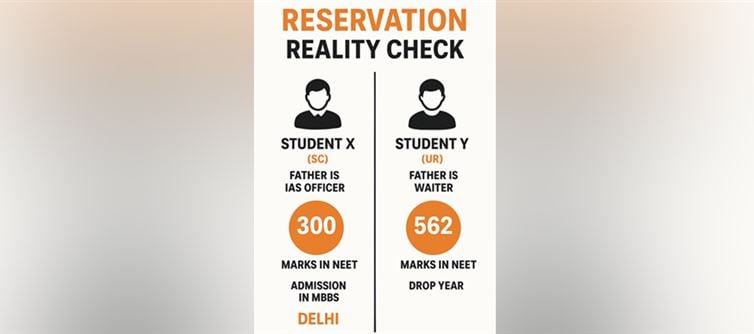
The debate on reservation in education often claims to “uplift the marginalized.” But real-life cases expose a very different picture. Take this example:
👉 Student X (SC) scored 300 marks in NEET.
👉 Student Y (UR) scored 562 marks in NEET.
👉 X’s father is an IAS officer.
👉 Y’s father is a waiter.
👉 X got an MBBS admission in Delhi, while Y is forced to take a drop year.
Is this what we call social justice? Let’s break it down.
1. Merit is Punished, Privilege is Rewarded
Despite working harder and scoring higher, Y is denied a seat.
X, already from a privileged background, gets rewarded with admission.
2. Reservation Ignores Economic Reality
X’s family is already wealthy and influential.
Y’s family struggles financially, yet gets no benefits because of the birth.
3. The True Victims of ‘Equality’
Countless deserving students like Y are sidelined.
This system demoralizes talent and fuels brain drain.
4. From Social Justice to Vote bank Politics
Reservation, meant for upliftment, is now a political tool.
Instead of helping the poor, it benefits the already privileged within reserved categories.
5. The Hard Question
Is this equality or institutionalized discrimination?
Shouldn’t support be based on economic need, not caste tags?
🔥 Punchline: “When a waiter’s son with 562 marks loses to an IAS officer’s son with 300 marks, it’s not social justice—it’s social injustice in the name of equality.”




 click and follow Indiaherald WhatsApp channel
click and follow Indiaherald WhatsApp channel